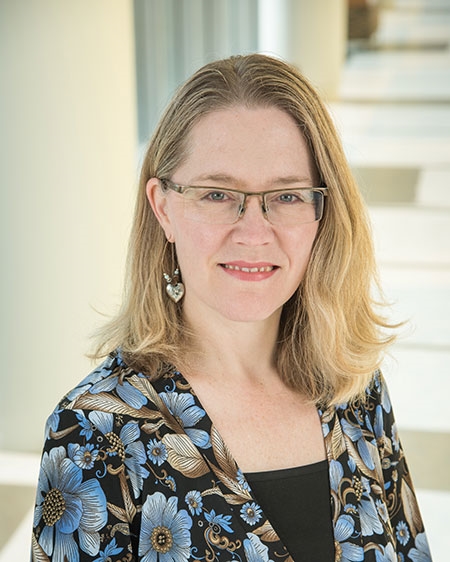As an oncology and palliative care nurse for 25 years, Heather Coats often saw patients' beliefs, preferences and values being ignored as they moved through the healthcare system.
Doctors and nurses typically asked patients "How are you?" They rarely got to the more humanizing "Who are you?" While working on her dissertation at the University of Arizona for a Doctor of Philosophy in Nursing degree, Coats stumbled upon a way to help change that.
"I had one of those unexpected findings, an 'aha' moment, during data collection," she said.
The U of A alumna was interviewing "Ruby," a woman with heart disease, when it happened. Ruby was breathless and hunched over when Coats arrived to interview her for the study. Coats began to ask about Ruby's life before illness intruded. Ruby's demeanor changed, and she became more vibrant. She removed her oxygen.
"Then, after I turned off the audio recorder, she broke my clinician heart," Coats recalled. "She said to me, 'No one has ever asked me these questions before.'" Ruby had a long history of heart failure, so she'd been in and out of hospitals for years.
Coats, now an assistant professor at the University of Colorado College of Nursing and director of research for the Hospice and Palliative Nurses Association, has received multiple grants from the National Institutes of Health to research this person-centered approach. Her findings indicate that it may profoundly improve health outcomes. Coats' latest research involves integrating a person's life narrative into their electronic health record.
How does biographical storytelling help seriously ill patients and their families?
Coats said that clinicians who hear patients' unique stories make better treatment decisions when those decisions are aligned with patient's beliefs, preferences and values. It's important for both parties to remember that patients are not just the sum of their symptoms.
These narratives provide opportunities for care partners and their patients to be heard and understood. It allows for more culturally sensitive care, she said. The nurses and patients who participated in Coats' research said this approach led to a deeper connection.
"For people and their families who live every day with serious illness, loss is inevitable," Coats said, "but allowing a person to be heard and understood — even in the busy healthcare clinical environment — can improve a person's psychological, social and existential well-being, even in the face of worsening physical health."
Coats imagines a world where person-centered healthcare becomes the cultural norm — one that offers more than just medical treatment plans. She'd love to see hospitals and clinics offer care plans that fully incorporate who a patient is, so a person's individualized context can be at the center of treatments they receive.
Even if a cure isn't available to a patient, there's still something nurses and doctors can do, she said. They can ask questions, allow people to name their emotions, and give some of their power back to them. And when it comes down to the hard decisions, knowing a patient's background and life experiences can lead to a collaboration that honors them on an individual level.
Maybe one day, nurses and doctors will say to their patients: Want to get better? Tell me your story.
This article is the latest in a series called the Dean's Spotlight, featuring outstanding students in the College of Education and Health Professions. Visit COEHP's online magazine, the Colleague, for more news from the six units that make up the College. Visit the Eleanor Mann School of Nursing page for more information on COEHP's nursing program.
Topics
Contacts
Shannon G. Magsam, director of communications
College of Education and Health Professions
479-575-3138, magsam@uark.edu
